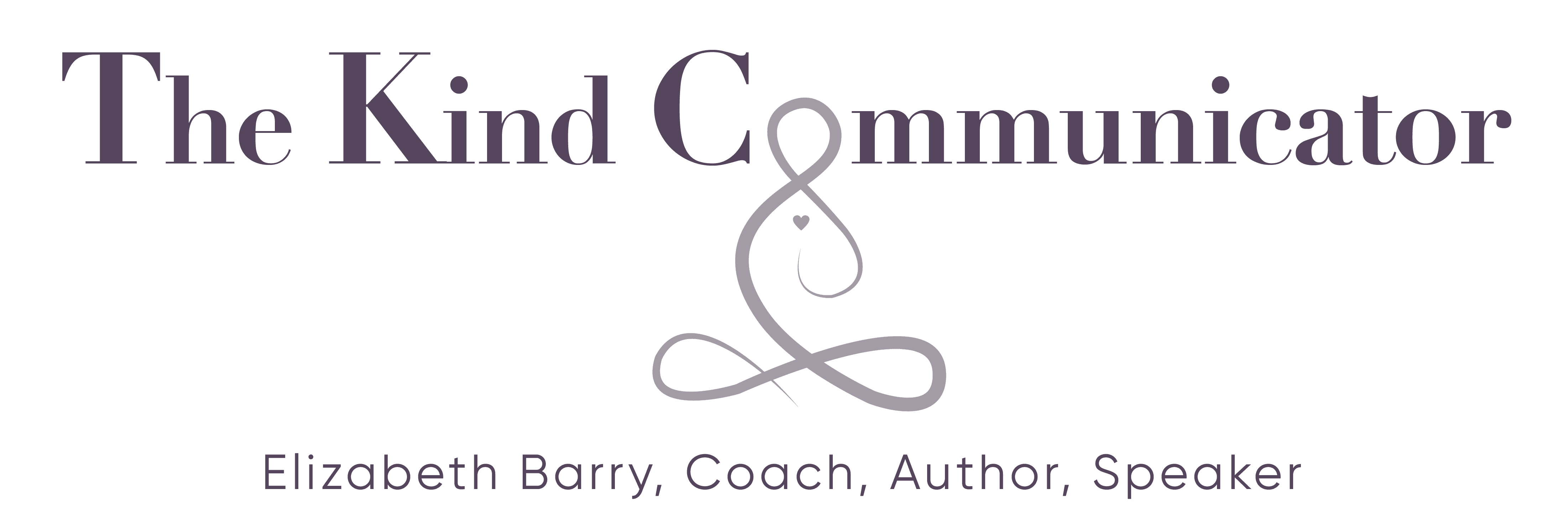
Boundary setting is an important part of our lives, but how do we actively and tactically put it into place? We hear it often, set a boundary, but how? What do we do to make sure it stays in place? Can boundary setting include saying “yes” more, too? Absolutely! You won’t want to miss this episode as host
Elizabeth Barry educates us further about setting heathy boundaries and why it is important for your career and relationships.
—
Listen to the podcast here:
Setting Healthy Boundaries In Life
We’re going to talk to you about boundary setting. I believe it’s such a crucial and important element in both our careers, our friendships and our loving relationships. When I think about boundary setting, I think about two different ideals. One, it’s saying no more to create more time and more happiness for ourselves. Two, it’s also saying yes more to get out of our fear and step into our courage. I want to start by saying no more and the idea of boundary setting in general. What is a boundary? Remember when you were young and you were playing a game and you would be at the beach in the sand and you would create that line with your heel? It would be that line. You’re not supposed to cross to get on the other person’s turf.
I like to tell my clients and my readers in my books that boundary-setting could be as beautiful as a fence with flowers on it. It doesn’t have to be so much so of some iron gate. It can be beautiful to think about. That’s the easier way to do this personal development and professional development tools. When we think about them, we want to think about them in an easygoing, seamless way, not something that’s going to be harsh or too hard for us to handle because it does, in fact, help us create and change our habits. If we’re not aware of these habits and we don’t tap into the muck, then we’re not in the mindset of how we can change and how we can become better people.
With boundary setting, think about setting yourself up in the sand with that line, dragging it with your heel or simply learning what you don’t want to do or don’t want to say or things that you’re not comfortable with. Maybe putting up a nice flowered fence in front of you and by speaking your truth, kindly directly and thoughtfully think about that. That’s your boundary. It’s that flowered fence. If you’re thinking about wanting to say no more, let’s start about why you don’t. I think that many of us fall into this category. We don’t say no enough or we say no too much because we’re an allower. I define people who are allowers as having a tendency to not create enough self-respect or self-worth for themselves or stand up for themselves. We’re constantly, continuously saying yes to please others.
We’re people pleasers and it takes a toll after a while. If you don’t put up that flowered fence, the result is you’re going to feel frustrated and you’re going to feel like you don’t have enough time or you’re doing things that are not making yourself happy. The boundary is there for you to communicate kindly and that’s a two-fold. When you want to say no more to things, you can’t put up a fence and think that everything is going to handle itself. That’s the only part one. Part two is using your words wisely. Choosing your thoughts to say to someone, “I don’t think I can do that,” and that’s the hardest part. That’s where boundary setting gets most of us because we’re too afraid to speak up, which we’re afraid we’re going to hurt someone or they’re going to be defensive.

Setting Healthy Boundaries: Saying “no more” paves way for lesser frustration.
We have to get over that fear and step into courage because when you say no more, you become less frustrated. You start to complain less because you’re not doing things that you don’t want to do. It’s as easy as that. If you’re looking for some tactical and practical tips to saying no more, if you are an allower, I have three rules to say no more. The first rule is you matter. When you matter, you don’t have to be or do anything for anyone other than yourself. You can still be a kind communicator. You can still be a nice person, but you can start with yourself. When you matter, think about what that means to you. It’s like creating a personal value system for yourself. These are my principles to live by and these are the things I will do or will not do. Once you start putting them into practice, that’s when you start to use them more and that’s when your voice becomes clearer and more eloquent. You can start speaking up to create those flowered fences. Knowing that you matter is the first key element in starting this process as a tactical and practical tool in your life.
The second thing is your time is valuable. When you can say no more, you recognize that your time is valuable. People who are allowers or don’t say no enough, they find themselves paying too much of their time on someone else or they’re spending too much of their time on mediocre things that they don’t want to do. This is your chance to wake up. You don’t know how long you have on this planet. Make your time useful by saying no more and realizing that your time is valuable. You can say it to yourself in your head and then the second part is to communicate that to someone. You don’t have to tell them, “I can’t do this with you because my time is more valuable than yours.” You can understand that in your mind and in your thoughts. You say, “I matter. My time is valuable.” You can come up with a clear definition of you don’t want to do it or you don’t have the time to do it or you appreciate the ask, but it’s not something that you’re interested in doing.
The third rule to saying no more is self-respect. Self-respect comes with saying no. Self-respect is a pure sign of influence. It’s a sign of leadership and it’s a sign of greatness in every human being. Self-worth is something that we have to continuously work on as adults because it’s difficult as we’re all in a rush. We all want to help people and we’re all doing way too many things at once. Once we start to slow down and understand that we matter and our time is valuable. Self-respect means so much to ourselves that we have the choice to say yes or no to things. We have a choice to make ourselves not the allower anymore and to transform in real-time as an adult. To give you a real-life example of that, I had a friend who has one of those girlfriends who wants to do jewelry parties. This person always is saying, “Will you do a jewelry party?” My friend kept saying yes and she kept having all these jewelry parties at her house. It so happened that there were way too many jewelry parties and she had to start saying no and saying this. “I love you, but this is something that I’ve done before. I can’t do it again.” The honest truth is that she had a hard time speaking her truth to that woman because she was an allower and she felt bad.
That’s the reason why we have to have these three rules of you matter, your time is valuable, and self-respect. The first part is knowing them. The second part is speaking your truth because when you put them all together, especially in our friendships, we learn to speak up for who we are and what we mean and what we want to do with our lives. I think that’s important because when you say no more to someone and you’re creating that boundary, you’re creating a lifestyle for yourself that’s healthy. You don’t want to be continuously doing things that you don’t want to do. There are going to be people that might be upset with you.
When you say no to people and they become mad at you for it, then there’s a lack of respect on their side. I truthfully, honestly believe that people who do not show respect are acutely unaware of its absence. These are the people who are unaware of their problems. They’re unaware of the things that they’re doing that might annoy people or it might not be healthy in a friendship or in a relationship and an ego check must be there, which is why I focus beyond ego, where life begins, where ego ends. We have to check on ourselves consistently. Are we doing the best for who we are and for our friendships and our relationships? Are we showing up as our best self? Civility is direly needed in society, and self-respect and self-worth.
Remember to respect yourself first. Remember how to be respectful to others by creating a balanced persona, creating that boundary setting because that’s going to result in less frustration. How do you get less frustrated? You say no more. You say no more to things that you don’t want to do and start planning more things that you want to do, or don’t plan anything at all and enjoy the fact that you’re not doing things for other people. It’s plain and simple. In careers, when you’re in an office and you find yourself doing things for other people way too much and you’re there until maybe 7:00, 8:00, 9:00 and you’re starting to get yourself frustrated, you don’t go home to have dinner with your family and you realize that this has to stop. A lot of us are held back by our fears because we don’t want to hurt someone or we don’t want to tell someone that we don’t want to help them out.
I think that there’s a lot of fear that’s based on that motto. Once you start to step into your courage, people will respect you more for having the boundary setting. That shows the influence. When you create a boundary, it’s such a great sign of influence. Respect is influence. That’s something that people will want to emulate within you. Remember that when you’re in your office and you’re in a career situation or a work environment and someone keeps asking you to do things. I think that it’s appropriate. An example would be to take them for a coffee, take them to tea and sit down with them and tell them the situation that you’re not comfortable with it and come up with solutions. In my new book,
Design Your Mind to be Kind, I call it solutions-based thinking and speaking.
If we can communicate in healthy ways by coming up with a solution and then speaking that solution to the people in our close arena that we can say, “I’m not comfortable with this, but here are some solutions that we can do to move forward or to move past it.” That’s one of the healthiest things that we can all do and it certainly helps with boundary setting. If you’re someone that does get mad at people who say no to you, it’s okay because personal and professional development is valuable and worth it. I’m going to give you, the people who get mad at people who say no, one thing, and this is my tip for you. Remember the good old marketing push or pull method. If you’re not a marketer, you don’t know what push or pull marketing theory is. Don’t worry, I’m going to explain it.

Setting Healthy Boundaries: Creating boundaries is a value principle that you can live by and use as a barometer.
There’s a push and there’s a pull, like the doors. I always mess up those doors. I always push instead of pulling it. It doesn’t work. You can either push people to do something or you can pull them in. Think about that. Getting mad at people for something that you want them to do that they start to say no to or create a boundary to, that’s pushing them away. You’re pushing someone away from your own inflexibility. Think about that. Being flexible is a sign of respect and that’s going to be where the pull comes in. When you’re flexible and you say, “That’s okay. I appreciate you telling me that.” That’s when the pull comes in. That’s when you’re pulling people into you.
You’re pulling good people into you and you’re creating the positive inertia and you’re creating a healthy environment within the close relationships in your life, whether work or career. That’s a little bit about the rules of saying no more. Remember that you matter, your time is valuable and self-respect is such a great influence to say no more, to stop being an allower. On the opposite side of boundary setting, I think about saying yes more and this is why I feel like it’s a good boundary. What does boundary-setting have to do with saying yes? It gets you out of your rigidity. It gets you out of your routine. Creating a boundary to me is like a life principle. It’s a value principle in which you can live by and use it as a barometer. Saying yes more gives you a breath of fresh air to lighten the load, lighten up the possibility.
I talked about fear and courage before and I think that so many of us don’t say yes to things because our fear tells us to stay. Our ego tells us, “Don’t do that. It might be too risky.” The cool thing about boundary setting with saying yes more is to maybe open that flowered fence and think about the possibility by saying yes more. The two pieces to that would be to, number one, say yes. Number two, acknowledge people for the ask. If someone is asking you to do something and you don’t say yes to it, there’s an opportunity that arises where we can give a response to people and respond to them, an acknowledgment. A small slight nod is beautiful. If you’re someone that is routine-oriented, if you’re someone who is rigid and you’re not flexible, you might be a little bored or stagnant in your life or your career. Think about what you can do to say yes more to possibility. That’s as much as a boundary-setting for yourself as saying no. I think that a lot of us have to learn to say yes more.
My classic example of that is for entrepreneurs, a lot of us entrepreneurs out there are putting our work out there. For me, I’m an author, I want to do book signings. I want to come in and coach teams. I want to create office hours as business therapy and in offices across the US. Instead of having beer cards, I wanted to offer my services so that people can come in and get a little business therapy on Friday afternoons, maybe then have a beer. I’m knocking on doors and I’m trying to get my services out there and I’m hoping that a lot of people will say yes more to try this opportunity, trying this idea. Saying yes more has an opening to it. It has much possibility where the person who says yes is a risk-taker. The person who says yes opens themselves up to, “It may or may not work, but I’m going to try something new.” That’s where opening that flowered fence comes in.
There you have it. This is a little bit of a wonderful tip for you to take home, tactical and practical advice about boundary setting. It’s not so much as a concrete thing. Think of it as a flowered fence. Think of yourself as someone who can say no more so you can live happier and healthier and respect yourself more. Do something different with your time. Use your voice in new ways to courageously say no, but do it as a solutions-based thinker, and also say yes to possibility more often. Acknowledge someone for the ask. You might not say yes, but you might acknowledge them or give them a nod for giving it a shot. Communication in boundary-setting is important. That second piece, not only creating that line in the sand for yourself, but also knowing how to communicate it to someone artfully is something that we can all use in this life. I hope that you take this with you. Tell a few friends when you go out to the bars, talk about this at your next dinner party, but create a healthy boundary setting for yourself and do it with love. I hope you have a great day. I’ll see you soon. Don’t forget, life begins where the ego ends.
Important Links:
Love the show? Subscribe, rate, review, and share!
Join the BeyondEgo community today:
[learn_press_profile]
 Boundary setting is an important part of our lives, but how do we actively and tactically put it into place? We hear it often, set a boundary, but how? What do we do to make sure it stays in place? Can boundary setting include saying “yes” more, too? Absolutely! You won’t want to miss this episode as host Elizabeth Barry educates us further about setting heathy boundaries and why it is important for your career and relationships.
Boundary setting is an important part of our lives, but how do we actively and tactically put it into place? We hear it often, set a boundary, but how? What do we do to make sure it stays in place? Can boundary setting include saying “yes” more, too? Absolutely! You won’t want to miss this episode as host Elizabeth Barry educates us further about setting heathy boundaries and why it is important for your career and relationships.







